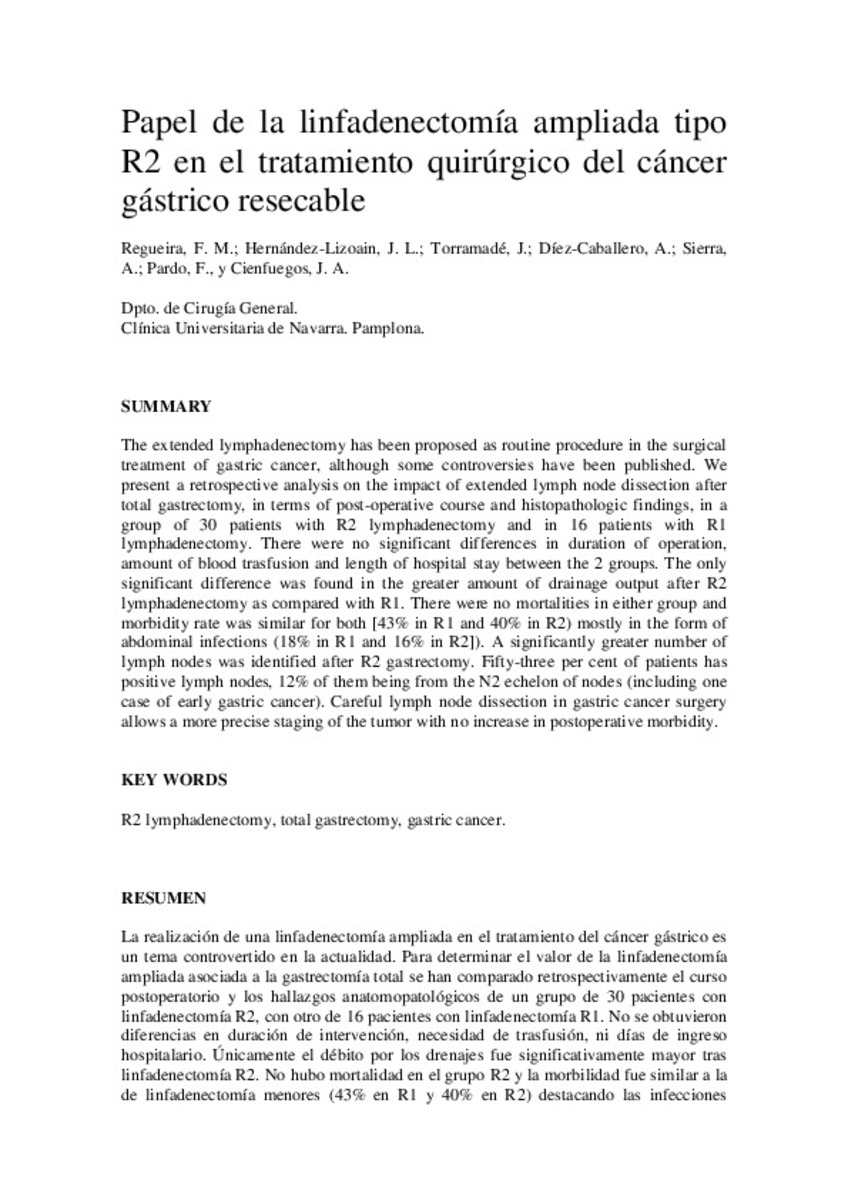Papel de la linfadenectomía ampliada tipo R2 en el tratamiento quirúrgico del cáncer gástrico resecable
Keywords:
R2 lymphadenectomy
Total gastrectomy
Gastric cancer
Publisher:
The Spanish Society of Digestive Pathology
Citation:
Regueira FM, Hernández-Lizoain JL, Torramadé J, Díez-Caballero A, Sierra A, Pardo F, et al. Papel de la linfadenectomía ampliada tipo R2 en el tratamiento quirúrgico del cáncer gástrico resecable. Rev Esp Enferm Dig. 1994 Dec;86(6):884-890
Statistics and impact
0 citas en

0 citas en

Items in Dadun are protected by copyright, with all rights reserved, unless otherwise indicated.







